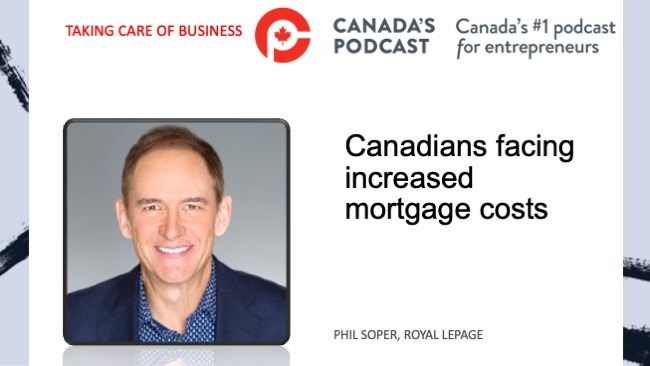The Consumer Price Index (CPI) rose 2.7% on a year-over-year basis in April, down from a 2.9% gain in March. Broad-based deceleration in the headline CPI was led by food prices, services and durable goods, reported Statistics Canada on Tuesday.

Gustavo Fring
The federal agency said deceleration in the CPI was moderated by gasoline prices, which rose at a faster pace in April (+6.1%) than in March (+4.5%). Excluding gasoline, the all-items CPI slowed to a 2.5% year-over-year increase, down from a 2.8% gain in March. On a monthly basis, the CPI rose 0.5% in April, mainly driven by prices for gasoline. On a seasonally adjusted monthly basis, the CPI rose 0.2% in April.
“While prices for food purchased from stores continue to increase, the index grew at a slower pace year over year in April (+1.4%) compared with March (+1.9%). Meat contributed the most to slower price growth, largely due to a base-year effect in prices for fresh or frozen beef (+4.4%) as a result of a monthly increase in April 2023 which fell out of the 12-month movement. Other contributors to the slowdown in grocery prices included other food products and non-alcoholic beverages (+2.1%), bakery and cereal products (+0.2%), fruit, fruit preparations and nuts (-0.8%) and fish, seafood and other marine products (-1.8%). From April 2021 to April 2024, prices for food purchased from stores increased 21.4%,” it said.
“Price growth for food purchased from restaurants also eased on a yearly basis, rising 4.3% in April 2024 following a 5.1% increase in March. The index was unchanged month over month in April, however a 0.8% monthly increase from April 2023 fell out of the 12-month movement and put downward pressure on the index.”
StatsCan said consumers paid 6.1% more at the pump year over year in April, following a 4.5% increase in March. Faster growth was driven by a 7.9% month-over-month increase in April. Higher costs associated with switching to summer blends, higher oil prices due to supply concerns and an increase in the federal carbon levy all contributed to the increase in prices.
Andrew Grantham, Senior Economist, CIBC Capital Markets, said the data should have provided the all clear on the inflation front that the Bank of Canada needed to start cutting interest rates in June.
“While headline CPI was in line with consensus expectations, rising 0.5% on the month for an annual rate of 2.7% (down from 2.9%), we saw continued softness in most core measures of inflation including CPI-Trim and CPI-median. Both measures eased on a year-over-year basis to 2.9% and 2.6% respectively, with the latter one tick below consensus expectations, and monthly increases remained muted. CPI excluding food/energy also posted a tame 0.1% seasonally adjusted monthly increase. Mortgage interest costs continued to put the greatest upward pressure on the year-over-year rate of headline CPI, with telephone services and internet the most downward pressure,” he said.
“At the time of the April interest rate decision, the Bank of Canada Governor stated that policymakers were encouraged by recent subdued inflation readings, but needed those to persist for longer before cutting interest rates. Since then we have received two more months of data pointing to tame underlying inflation, for a total of four in a row, and because of that we continue to forecast a first rate cut at the next meeting in June.”
Leslie Preston, Managing Director & Senior Economist, TD Economics, said April was another month of good news on Canadian inflation.
The BoC’s preferred inflation gauges moved into the 1-3% target range for the first time in nearly three years. However, at 2.8% it is still close to the top of the BoC’s range, and we expect the bank will want to see a bit more confirmation before taking rates lower and lean towards a July cut,” she said.
“However, markets have found today’s inflation number a bit more reassuring, and have increased the odds of a June cut to better than 50-50. But June or July, Canadians can be increasingly confident that alongside lower inflation, interest rates are headed lower soon.”
Douglas Porter, Chief Economist, BMO Capital Markets, said chalk another one up for the doves, with four consecutive tame CPI readings to start 2024.
“There is really no debate that monetary policy is tight in Canada, and that it is now consistently weighing on underlying inflation. The key question for the BoC is whether inflation has tamed sufficiently to now start reducing the degree of restrictiveness. We believe that the door is open for a BoC rate cut, and we have been leaning to June move for the past six months. But it remains a close call, and when the Bank does eventually move, it will be gradual with a highly patient Fed acting as a limiter on how far and how fast Canadian rates can fall,” he said.

Mario Toneguzzi
Mario Toneguzzi is Managing Editor of Canada’s Podcast. He has more than 40 years of experience as a daily newspaper writer, columnist, and editor. He was named in 2021 as one of the Top 10 Business Journalists in the World by PR News – the only Canadian to make the list. He was also named by RETHINK to its global list of Top Retail Experts 2024.
About Us
Canada’s Podcast is the number one podcast in Canada for entrepreneurs and business owners. Established in 2016, the podcast network has interviewed over 600 Canadian entrepreneurs from coast-to-coast.
With hosts in each province, entrepreneurs have a local and national format to tell their stories, talk about their journey and provide inspiration for anyone starting their entrepreneurial journey and well- established founders.
The commitment to a grass roots approach has built a loyal audience on all our social channels and YouTube – 500,000+ lifetime YouTube views, 200,000 + audio downloads, 35,000 + average monthly social impressions, 10,000 + engaged social followers and 35,000 newsletter subscribers. Canada’s Podcast is proud to provide a local, national and international presence for Canadian entrepreneurs to build their brand and tell their story





